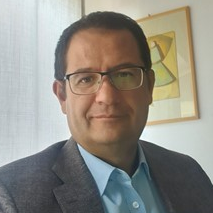Resource Recovery and Reuse for Urban Sustainability and Ecological Development (R3USED)
A special issue of International Journal of Environmental Research and Public Health (ISSN 1660-4601). This special issue belongs to the section "Environmental Science and Engineering".
Deadline for manuscript submissions: closed (31 October 2020) | Viewed by 4573
Special Issue Editors
Interests: nutrient removal and recovery; biological desulfurization; sludge management; mining water remediation; heavy metals; biorefinery; anaerobic digestion
Interests: aerobic and anaerobic bioprocesses; bioreactors; waste-to-bioenergy and added value products; bio-hydrogen; biorefinery; nutrient removal and recovery from wastewater; sulfur cycle; heavy metals; mathematical modelling
Special Issues, Collections and Topics in MDPI journals
Interests: anaerobic bioprocesses; nutrient removal; soil remediation; asbestos containing waste; photofermentation; advanced chemical oxidation
Special Issue Information
Dear Colleagues,
The rapidly increasing population and urbanization demand a more sustainable form of development for cities. The urban area, a complex system of infrastructures including transportation, electrical, drinking water, and sewage networks, needs to be designed in a more efficient and effective way to provide a healthy and sustainable environment for human and natural communities. In order to achieve this, it is necessary to embrace the principles of a circular economy by shifting waste management from dissipative to circular pathways. In the near future, modern cities should be reshaped as zero-waste regenerative urban areas founded on a sustainable management of land, water, air and energy, which calls for innovative technologies to be implemented in waste treatment plants to boost resource recovery and reduce greenhouse gases emissions. This Special Issue welcomes papers proposing practical and ecofriendly solutions promoting resource recovery and recycling from water, gas, and solid waste streams. Papers presenting applications of innovative technologies at pilot- and full-scale level and reprocessing of recovered materials into value-added end-products are highly welcome.
Dr. Francesco Di Capua
Prof. Dr. Giovanni Esposito
Prof. Dr. Francesco Pirozzi
Guest Editors
Manuscript Submission Information
Manuscripts should be submitted online at www.mdpi.com by registering and logging in to this website. Once you are registered, click here to go to the submission form. Manuscripts can be submitted until the deadline. All submissions that pass pre-check are peer-reviewed. Accepted papers will be published continuously in the journal (as soon as accepted) and will be listed together on the special issue website. Research articles, review articles as well as short communications are invited. For planned papers, a title and short abstract (about 100 words) can be sent to the Editorial Office for announcement on this website.
Submitted manuscripts should not have been published previously, nor be under consideration for publication elsewhere (except conference proceedings papers). All manuscripts are thoroughly refereed through a single-blind peer-review process. A guide for authors and other relevant information for submission of manuscripts is available on the Instructions for Authors page. International Journal of Environmental Research and Public Health is an international peer-reviewed open access monthly journal published by MDPI.
Please visit the Instructions for Authors page before submitting a manuscript. The Article Processing Charge (APC) for publication in this open access journal is 2500 CHF (Swiss Francs). Submitted papers should be well formatted and use good English. Authors may use MDPI's English editing service prior to publication or during author revisions.
Keywords
- resource recovery and reuse
- wastewater treatment
- sustainable urban development
- biochemical conversion
- waste recycling
- waste treatment plant upgrading
- eco-friendly technologies
- circular economy







